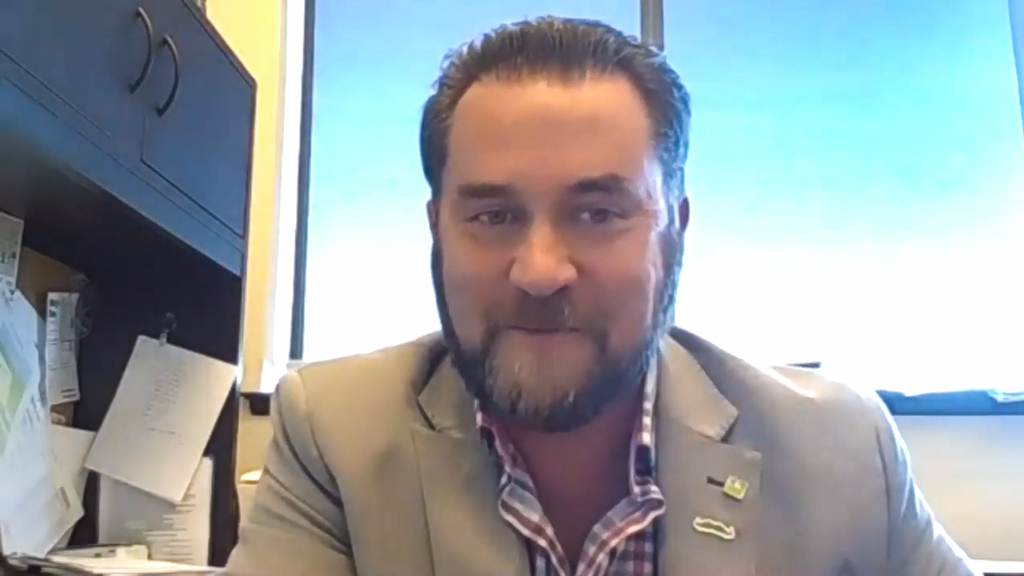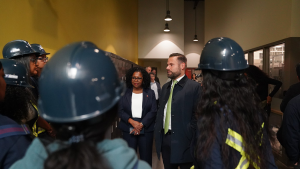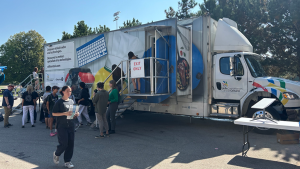One year after the start of the pandemic, Ontario’s construction leaders are at a pivotal moment, a recent online panel of contractors were told, and the moves they make now to lead their teams into the future may be just as important as those made during the early days of the COVID crisis last March and April.
Ontario General Contractors Association health and safety committee chair Craig Lesurf moderated the panel discussion of construction executives, offering PCL eastern Canada president Todd Craigen, Percon Construction president Frank Perricone and Greg Brokenshire, president of Alberici Constructors, an opportunity to summarize lessons learned in the past year and offer leadership visions.
“I think the decisions we’re taking now are really going to affect our future as leaders,” said Brokenshire. “As a leader, you’re closely watched. How you behave right now is a key piece.”
Craigen drove the conversation early with his list of five key leadership points taken from the first year of the pandemic:
- Shift your focus to people and not so much on process. “If you don’t get the people issues right, it doesn’t matter how much process you have in place,” said Craigen.
Firms may have underestimated the level of anxiety that existed among employees in early days of the pandemic, and this was compounded by misinformation, he said.
“We needed to be more compassionate. We needed to show empathy. People felt their lives were at risk and we needed to acknowledge that,” said Craigen. “In these situations, verbal communication is always better than written.”
- Don’t leave your clients guessing. Early communication with clients to help them understand the impacts COVID is having on their projects is very important. Take the time to explain what you’re doing to mitigate the risks.
“We did this on some of our jobs, but not all of our jobs. And on the ones that we did this it was vital and went a long way in helping us recover costs at the end of the day,” said Craigen.
- Be quick to engage leadership. Consider establishing diverse groups of people to filter information and advice leadership on a daily basis.
“I want to put extra emphasis on the word diverse. You need a good cross-section of people across the organization bringing a variety of perspectives to the issues. At PCL, we created six separate task force groups, each one led by one of our most senior executives in the company,” said Craigen.
These teams will help PCL prepare for what’s coming after the pandemic is over, he said.
- On the health and safety file, focus on timely communication with key stakeholders.
Craigen said if PCL had had more trade-contractor partnering sessions early on to foster greater buy-in to the ever-evolving protocols, it would have been beneficial, especially since the firm adopted some measures that were not yet standard industry practices.
“Those communications needed to be consistent, timely and accurate,” he said.
- Share information freely with others. “No one should have a monopoly on good ideas when it comes to health and safety,” Craigen said.
Lesurf, president at Gillam Group, praised the PCL executive for the list and said he was paraphrasing Winston Churchill — never let a crisis go to waste.
“In this case, it’s sharing. I think as a safety group across all our companies, we’ve been doing that. I think the purest form of flattery is the R-and-D side of it, which is rip off and duplicate.”
Brokenshire suggested that construction executives are now entering the “long game phase” and it was time to stand back and analyze the past year.
At this point, he said, time-tested roles of leaders such as motivating their teams are as important as ever.
“We still need to be staying positive,” said Brokenshire. “How many times right now do you get on a Zoom call with somebody and the first thing you talk about is how much this sucks, and then how hard this is.
“I really think that’s something we should avoid. We should be trying to keep people positive, keep people motivated, as leaders.”
Perricone said communication was his top focus.
“From the onset of the pandemic, I made sure that I was always available to all my employees. I always have been, but I emphasized that to them.
“As a leader we have to remember the most important job we have is to listen to what they’re telling us and then take that information and run with it.”
Follow the author on Twitter @DonWall_DCN.











Recent Comments
comments for this post are closed